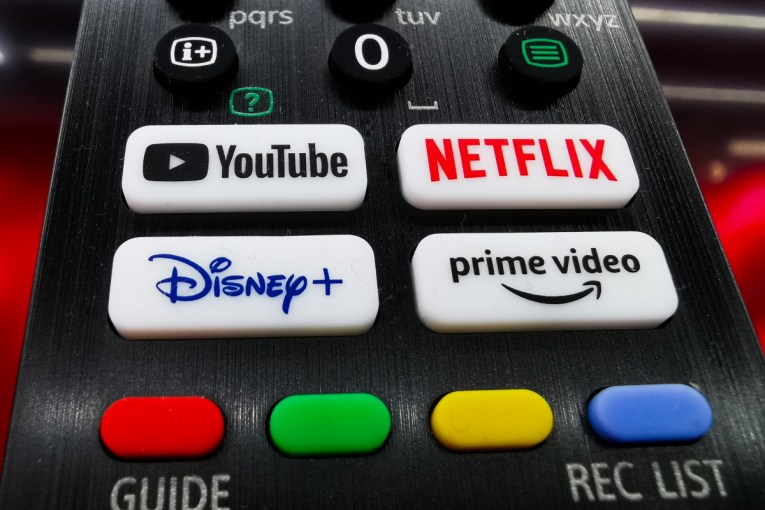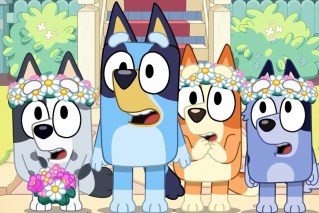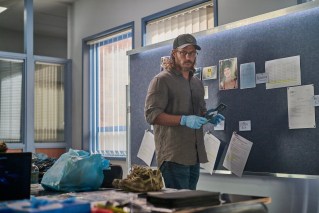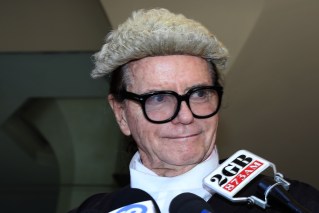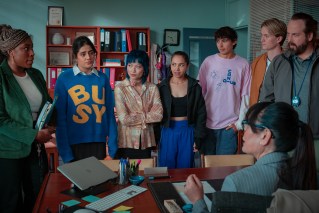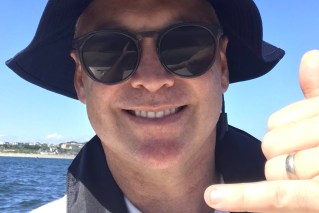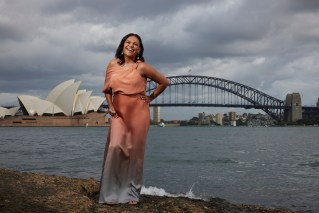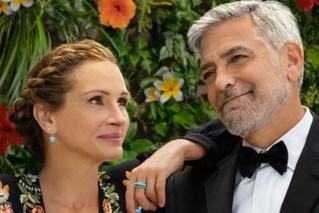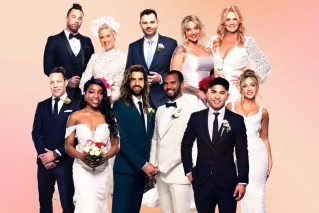First Contact: SBS proves TV can change lives
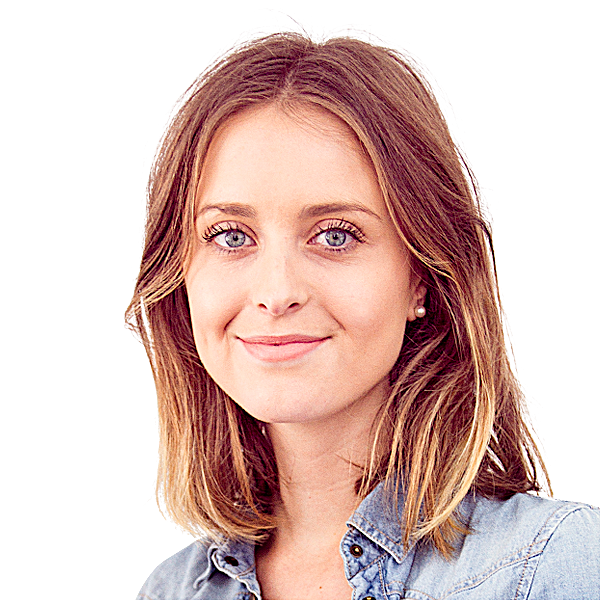
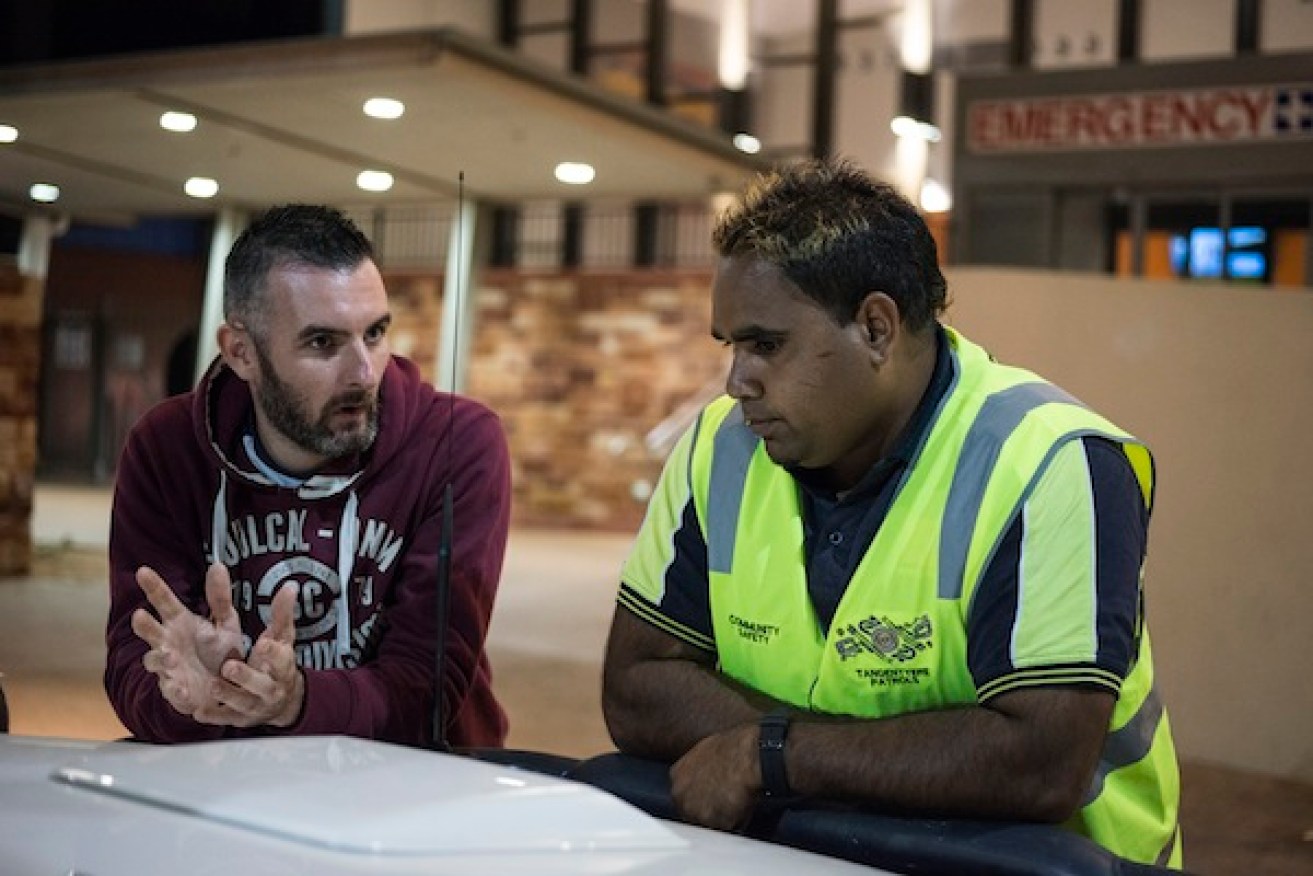
Trent
Sometimes the best conversations arise from the things we’re not comfortable talking about.
While various campaigns, government initiatives and efforts from prominent indigenous individuals have all attempted to remove the stigmas and stereotypes attached to Aborigines, a pervasive ignorance appears to remain.
• First Contact: the most shocking moments from episode two
• Why Adam Goodes can re-educate Australia
Rather than sidestepping the issue, SBS decided to tackle it head on with its program First Contact, hosted by Ray Martin.
The show placed six Australian citizens into indigenous communities, throwing them into police cars late at night in Alice Springs, strangers’ homes in Sydney, cells in regional prisons and the remote wilderness of Central Australia to see how they coped.
Some fared better than others, but all left with at least a tiny inkling of life outside their own personal bubble.
Bo-Dene, 25
Supermarket worker from Melbourne, Victoria
Bo-Dene had some of the strongest opinions on the indigenous community prior to coming on the show, viewing them as victims of their own decisions, rather than their environment. She argued that the only way to achieve equality was for indigenous people to “stop taking so much from the government”.
Speaking to The New Daily, Bo-Dene said that she’s now ashamed of her original views.
“I had such a negative view for so many years … the people that we met were incredible,” Bo-Dene said.

Bo-Dene on First Contact. Photo: SBS
“Fitzroy Crossing was a big turning point for me, it was one of the most amazing places I’ve ever been.”
After her stint on the show, Bo-Dene returned home to find her husband had left her, a traumatic experience only made bearable by the stories and people she had just encountered.
“If I hadn’t done the trip I don’t think I would have been able to handle it,” Bo-Dene said.
“Meeting women like June at Fitzroy Crossing, they were incredible, to think of all their struggles, it’s crazy. It really gave me strength and courage to handle an unfortunate thing that happened in my life. It was tough but I have to be strong and go on.”
Bo-Dene added that she had been avoiding social media and was “nervous” for the public to see the final episode of the show.
“There has been a lot of backlash – a lot of people who have been very quick to throw some nasty comments – but I stopped looking at it because, at the end of the day, it was my journey and it was courageous to put my views out there.”
Before: “When I think of Aboriginal people, I think of wasters … They’re layabouts, they don’t really do a lot of things and they get support from the government.”
After: “That was a terrible comment, I’m so ashamed. I think it was so offensive. Now I would never think to call Aboriginal people ‘wasters’. They’re very strong people.”

Jasmine. Photo: SBS
Jasmine, 33
Mother of four from Logan, Queensland
Welfare recipient Jasmine went on the show because she felt conned by a system that favoured indigenous people over families like her own.
In the first episode of the show, her views were immediately challenged when she met another young mother who received the exact same amount of welfare support.
Before: “If I was to hear that life is hard because they’re Aboriginal, I would say ‘leave’… My views about Aboriginal people on a scale of one to 10 – 10 being the worst – are probably about an eight.”
After: “My journey’s not ending, it’s just beginning. It’s going to continue and I won’t stop until I’m ready to stop. I’ve been seeing such a negative view of Aboriginal people so to come and have this experience and continue my journey, that’s awesome.”
“They love their family, they love their community. They’re honest, they were open with us. There’s so many words I could use.”
Alice, 31
Food nutrition student from the Gold Coast, Queensland
Alice had dreamed of submerging herself in Aboriginal culture “to learn”, despite having limited contact with first Australians.

Alice. Photo: SBS
Having done extensive research before the trip, she relished the opportunity to meet indigenous people in person.
Before: “I’ve had very little to do with Aboriginal people … I really align with their indigenous beliefs.”
After: “Learning something from a textbook is different to meeting people and hearing their stories. My eyes were opened to the magnitude of the problems they face. It reinforces in me the strength in these people.”
Trent, 28
Law enforcement officer and single father from Western Sydney, New South Wales
Having only come into contact with indigenous people through his line of work, Trent had a relatively negative view of the community as a group of alcoholic, often violent, people.
Meeting hardworking Aboriginal families in Sydney, Trent admitted his views had been limited. A stint with night patrol police in Alice Springs also acted as a wake-up call.
Before: “Everything costs more for me, why is it less for them? They’re having this free ride and I’m working my ass off … when I hear Aboriginal people say they can’t get a job I just think it’s rubbish.”
After: “I thought (Aboriginals were getting a free ride), I didn’t know – I was ignorant. This experience has shown me otherwise.”

Sandy. Photo: SBS
Sandy, 41
Mortgage broker and mother-of-five from Newcastle, New South Wales
Without a doubt the most prejudiced member of the group, Sandy did not last the duration of the show, choosing to leave with 15 days remaining.
Her refusal to sleep on the “dirty” beds of her hosts and her discomfort at being taken into remote communities had her threatening to leave from the first episode.
The biggest learning curve for Sandy was meeting indigenous people and learning about the stolen generation, a concept she once described as “whinging”.
“I thought they were taking children from bad situations and teaching them the white man’s way,” Sandy explained. “Obviously that wasn’t the case. It was very sad.”
Before: “I always say that God gave black people rhythm and soul. They can dance and sing and are hot while they dance, but when it comes to brains, white people have a better gene, better make up. If you’re out there looking at f***ing kangaroos jumping past, how much more can you learn?”
After: (Telling the Daily Mail why she left the show) “I was bored. They were going to go and see some Aboriginal people intoxicated and on drugs and all that sort of stuff all day so I just figured I’d get away.”

Trent. Photo: SBS
Marcus, 23
Photographer from Sydney, New South Wales
While Marcus had positive views towards the indigenous community, he had never met Aboriginal people due to a “sheltered life”.
In an attempt to break out of his self-described “perfect bubble”, Marcus embraced the opportunity to speak to people in Redfern, only a few suburbs away from where he grew up.
Before: “People that think that Aboriginal families are bludging are just crazy.”
After: “Some of the people I’ve met are just such natural born leaders and I think the future’s really bright in a lot of places we’ve been but there’s still a mountain of work to be done from everybody.”
